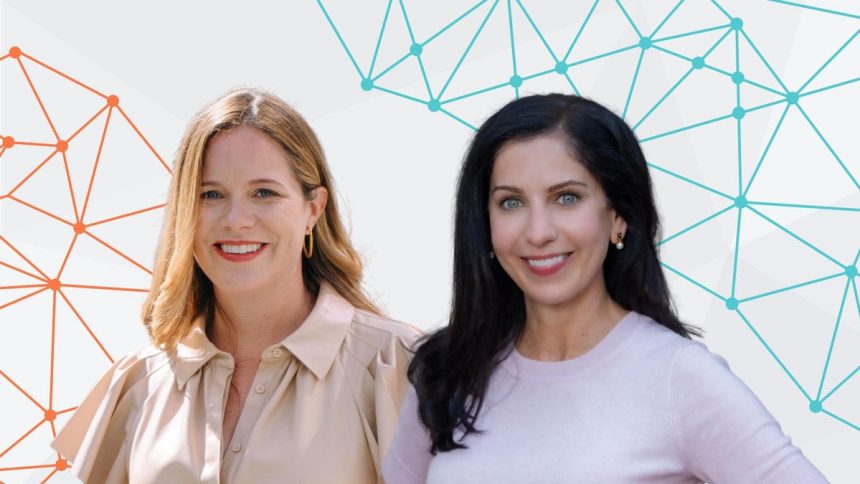“Meet your users where they are” is a common refrain in the startup world. This adage is just as and maybe even more important in the social sector. For nonprofits, meeting your users where they are can be the difference between people in-need accessing critical services or not. Given that over 90% of humans on the planet have a cell phone, building mobile-first social service products is a no-brainer.
Few understand this as well as Dori Kreiger, Executive Director of CTIA Wireless Foundation. CTIA Wireless Foundation is focused on unlocking philanthropy to help entrepreneurs build wireless social impact tech. Fast Forward, the organization I lead, and CTIA Wireless Foundation share a common ethos around advancing proximate leaders building tech-first nonprofits. I interviewed Dori to talk about our shared principles, trends we’re seeing in wireless nonprofit tech, and more.
Shannon Farley: Dori, let’s talk wireless for good. You are a leader in social impact tech with 25+ years of nonprofit experience under your belt. Now, you serve as the Executive Director of CTIA Wireless Foundation, where you’ve been leading for five years. How has the social impact space evolved since you started off in the social sector?
Dori Kreiger: The social impact sector has evolved dramatically throughout my career. A major evolution has been the widespread adoption of new technologies. When I first started working in philanthropy, nonprofits were designing their very first websites. Now, we are donating to our favorite causes through texts and using VR to transform education. It is pretty incredible how quickly it’s all changed. Technology progressed from a tool supporting operations to a tool creating social impact. Today, technology is an integral part of social good solutions, especially the use of mobile phones. Wireless technology has brought giving and social impact work right into the devices that we use every day.
Farley: CTIA Wireless Foundation is leading the charge in mobile-first social impact. Your team has supported 15+ nonprofits through its Catalyst initiative since 2020. Tell us about Catalyst and some of the organizations that you’ve supported.
Kreiger: I am so proud of the Foundation’s signature initiative, Catalyst! Catalyst awards are given to ambitious social entrepreneurs tackling pressing challenges in American communities using mobile-first solutions. These leaders are doing so much good work to address the digital divide, produce innovative telehealth solutions, and create access to more educational opportunities for marginalized communities. And many of the Catalyst Winners have participated in Fast Forward’s Accelerator Program! Our shared grantees have chosen to deploy wireless technology because of its speed, efficiency, and adaptability. One example I immediately think of is our first Catalyst Winner, Objective Zero Foundation! Objective Zero is a mobile app preventing suicide in the military community. It connects service members, veterans, their families, and caregivers to a nationwide network of peer and civilian support through text, voice, and video chat.
Farley: Objective Zero Foundation is a great example. Objective Zero was founded by proximate leaders – veterans, active military, and their families. Core to the ethos of both CTIA and Fast Forward is a strong commitment to supporting founders who have lived the problems they’re solving. Why is this principle so important to you and your team?
Kreiger: I am truly inspired by the passion that drives the work of so many social entrepreneurs. This passion is often ignited by having lived the issue they are addressing. What’s more, that lived experience is critically important to achieving real impact. These entrepreneurs understand the nuances of the problems, how to best reach their communities, and have unique insights that inform their mobile-first solutions. When Objective Zero Foundation Co-Founder Chris Mercado saw concerning posts on social media from his fellow combat veteran, he picked up the phone and called him. This led to a conversation that saved the infantryman’s life. From that phone call, Objective Zero was created. The Objective Zero team understands firsthand the mental and physical impact of military service, and how meaningful one-to-one interactions can be. So, they knew the app should focus on creating peer-to-peer connections in order to save more lives.
Farley: Nonprofits are adapting to the tech-first landscape by deploying solutions that meet beneficiaries where they are. It’s one of the key reasons wireless innovation is so impactful – it leverages a tool nearly every person has in their pocket – a phone. How have you seen nonprofits leverage wireless innovation for good?
Kreiger: The potential for wireless to create social innovation is just being realized. At the heart of it is that through mobile-first solutions, social entrepreneurs can reach users where they are: their phones. Take our Catalyst 2021 winner mRelief, which uses text messages, voice, and web to create access to nutritious food for American families through the Supplemental Nutrition Assistance Program (SNAP). mRelief’s pre-screening tool helps reduce families’ time in the social service office by 75%! The need for meals ballooned as a result of the pandemic, and mRelief’s easy-to-use platform helped families in need bridge the equity gap and connect to SNAP benefits through their mobile phone. It was incredible to see the vast number of people mRelief was able to help through the phones they were already so connected to!
Farley: We’re seeing a lot of mobile-first innovation in the ed-tech space. Can you talk to us about what you’re seeing?
Kreiger: We’re seeing so much great work here. Wireless is completely changing the education space. From VR experiences to mobile apps and AI, we have seen incredible examples of entrepreneurs improving education via mobile phone technology. The Foundation is thrilled to be a Fast Forward partner, doubling down to support education tech nonprofits like Almost Fun and UPchieve. I’d love to share with you a little bit more about these fantastic teams.
First, Almost Fun. Through a digital library of interactive lessons that teach math skills using culturally relevant content, Almost Fun has served more than 2M learners on its platform. It’s all mobile-first, making the tool accessible for young people. Next, UPchieve provides free, on-demand STEM, writing, and SAT tutoring for low-income high school students. Students can access UPchieve from the devices they already have access to, making it easier for underserved students to get the additional learning support they need. It’s incredible to see Almost Fun and UPchieve provide students with the support they need, without the cost or frustration of other services.
Farley: It is! And what’s even more exciting is that the impact spans beyond ed-tech. Can you talk to us about the cross-sector wireless trends you’re seeing?
Kreiger: Bold social entrepreneurs who take advantage of 5G have a real opportunity to impact our communities and disrupt the status quo. Leading wireless technologies offer a significant boon to making meaningful advances in social impact. We are seeing the powerful use of 5G with Kinfolk, a Fast Forward alum we supported this year. Kinfolk is an AR-powered education tool that tells the stories of women, people of color, and LGBTQIA+ leaders who are underrepresented in history. With 5G’s low latency and high speeds, Kinfolk brings a smooth and uninterrupted VR experience to users. This impact is bringing equity to the stories our monuments tell. And, people are noticing! Kinfolk just produced an immersive experience that was featured at the Tribeca Film Festival. We have only scratched the surface of the impact 5G will have on the social impact space, and I am excited to be a part of that journey.
Read the full article here









